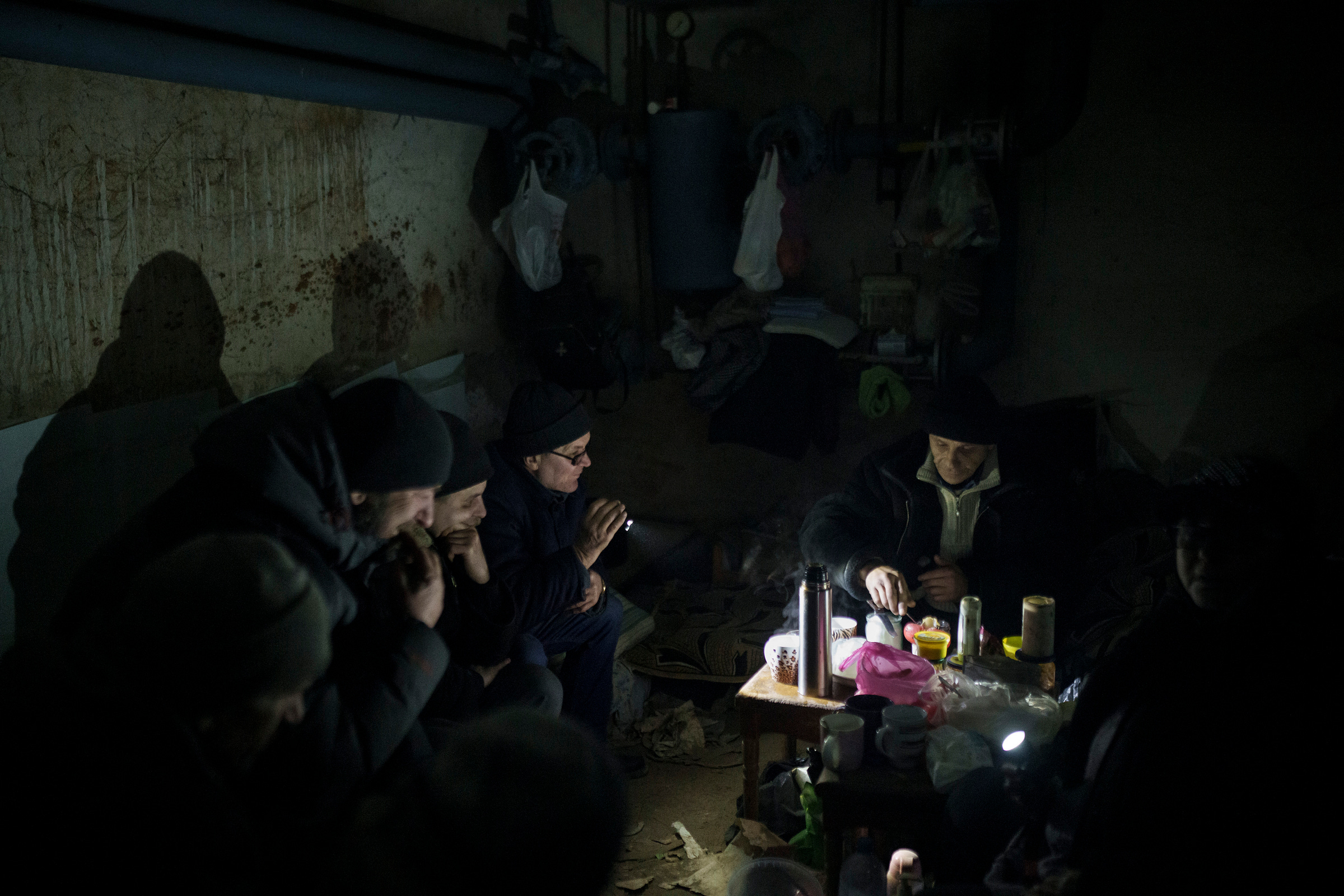Unsettling Advent 2022, Day 4
“God shall judge between the nations and shall arbitrate for many peoples; they shall beat their swords into plowshares and their spears into pruning hooks; nation shall not lift up sword against nation; neither shall they learn war any more.” (Isaiah 2:4)
Waiting. Isn’t that what Advent is all about?
During Advent, we wait for something that is coming — we prepare for an arrival. We think of it as a joyful season, a season of sweet anticipation.
But Advent is also a season of fasting, of hunkering down, of stripping away what is known to prepare for what is unknown.
Here is a different kind of Advent story, a different kind of spiritual pilgrimage.
On Feb. 21, Russia’s President Vladimir Putin announced publicly that he would recognize the eastern regions of the sovereign nation of Ukraine as part of Russia. Three days later, Putin launched a “special military operation” in eastern Ukraine. Within minutes of his announcement, missiles from Russian launch sites began exploding in Kyiv, Kharkiv, Odesa, and Donbas. Essentially, all corners of Ukraine came under aerial attack.
Less than two weeks later, the Mayor of Kyiv, Vitali Klitschko, issued an astounding invitation to religious leaders around the world.
“I make an appeal to the world’s spiritual leaders to take a stand and assume the moral function that is incumbent upon them, and to proudly assume the responsibility of their religions for peace,” said Klitschko. “Come to Kyiv to show their solidarity with the Ukrainian people. To show their compassion, and to join together in a spirit of harmony that my country and the whole world needs. Let us make Kyiv the capital of humanity, spirituality, and peace.”
Eleven weeks later an international interreligious delegation boarded a bus from Poland and headed into war-torn Ukraine destined for Kyiv. I was part of that first delegation to answer Mayor Klitschko’s call.
Our pilgrimage included many sacred encounters. But there is one that haunts me this Advent: Two priests, Revs. Vitaliy and Myroslav, welcomed us to the Church of the Nativity of the Most Holy Theotokos, a Ukrainian Greek Catholic Church, in the Kyiv suburb of Irpin.
These two priests and 30 members of their community had lived in a hastily constructed church basement for two weeks during the vicious “battle for Irpin” (Feb. 27-Mar. 28) while the region was held by the Russian military.
With a full-scale assault raging over their head, the community lived in fear that their hiding place would be discovered. They waited. Huddled in blankets, they had a small kerosene lantern and stove and a hose from the garden ran in through an upper window for water. Buckets served as latrines. They ate packaged food, Ramen noodles, bread, and soup from raw vegetables. For two weeks they waited for the vicious chaos to end.

Each night during the battle, a priest would steal into the church above to retrieve hosts from the tabernacle. Each day, the hidden group would celebrate Mass, as if it were their last.
While they waited in the ground, they prayed. They told stories. They gave each other courage and calmed each other’s fears. Every day, in some small way, they laid down their lives for one another. Though their hearts were like wax melting away within them, they survived. They lit their candles. They shared their bread.
Finally, the Russian troops retreated and the “battle for Irpin” ended. The community who hid in the basement of the Church of the Nativity of the Most Holy Theotokos emerged into the aftermath of the “slaughter of the innocents.” In Bucha and Irpin, an estimated 1,000 people were killed, including 31 children. At least 280 bodies of civilians were found in mass graves, and an investigation into war crimes continues today.
Father Vitaliy showed us shell fragments from the church floor and pointed out the bullet holes in the walls and the shattered windows. He showed us the hole in the ground outside where a tree had exploded under an incoming shell. But, he said, inside the church the iconostasis was undamaged. The Holy Doors, with the icon of the Annunciation, were not hurt. This was a source of great joy.
Advent is a time of waiting. And at the center of our faith is this Advent annunciation from a holy messenger: “Do not be afraid, Mary, you have found favor with God. You will conceive and give birth to a son and you are to call him Jesus.”
We are a people huddling in the dark. We are a people gathering our neighbors close. We are a people sharing our bread. We are the ones sending out scouts in search of the Light.
Do not be afraid.
Rose Marie Berger, a senior editor at Sojourners magazine, helped to organize (along with the Poland-based NGO Pacjent Europa) an international religious delegation for just peace to Ukraine. In May, Jewish, Christian, and Muslim leaders from four countries went to Kyiv because, they said, “our faith demands our presence here.” See more coverage here and here.

